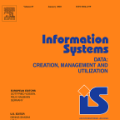Process mining techniques help to improve processes using event data. Such data are widely available in information systems. However, they often contain highly sensitive information. For example, healthcare information systems record event data that can be utilized by process mining techniques to improve the treatment process, reduce patient's waiting times, improve resource productivity, etc. However, the recorded event data include highly sensitive information related to treatment activities. Responsible process mining should provide insights about the underlying processes, yet, at the same time, it should not reveal sensitive information. In this paper, we discuss the challenges regarding directly applying existing well-known group-based privacy preservation techniques, e.g., k-anonymity, l-diversity, etc, to event data. We provide formal definitions of attack models and introduce an effective group-based privacy preservation technique for process mining. Our technique covers the main perspectives of process mining including control-flow, time, case, and organizational perspectives. The proposed technique provides interpretable and adjustable parameters to handle different privacy aspects. We employ real-life event data and evaluate both data utility and result utility to show the effectiveness of the privacy preservation technique. We also compare this approach with other group-based approaches for privacy-preserving event data publishing.
翻译:· 然而,所记录的事件数据应包括与处理活动有关的高度敏感信息。负责的采矿过程应提供对基本过程的洞察力,但与此同时,它不应透露敏感信息。在本文件中,我们讨论了直接应用现有以群体为基础的隐私保护技术的挑战,例如,k-匿名、多样性等,以显示隐私保护技术的有效性。我们还将这一方法与其他以群体为基础的保存隐私活动的方法进行比较。我们还将这一方法与其他以群体为基础的保存隐私活动的方法进行比较。




